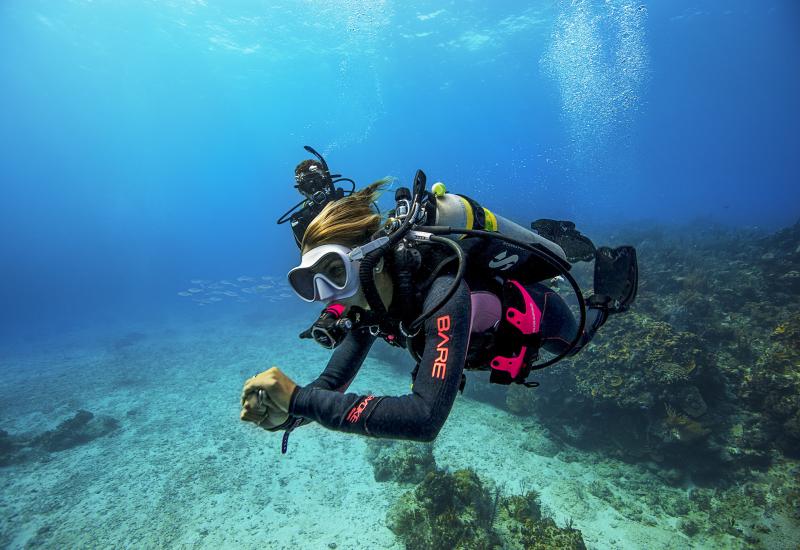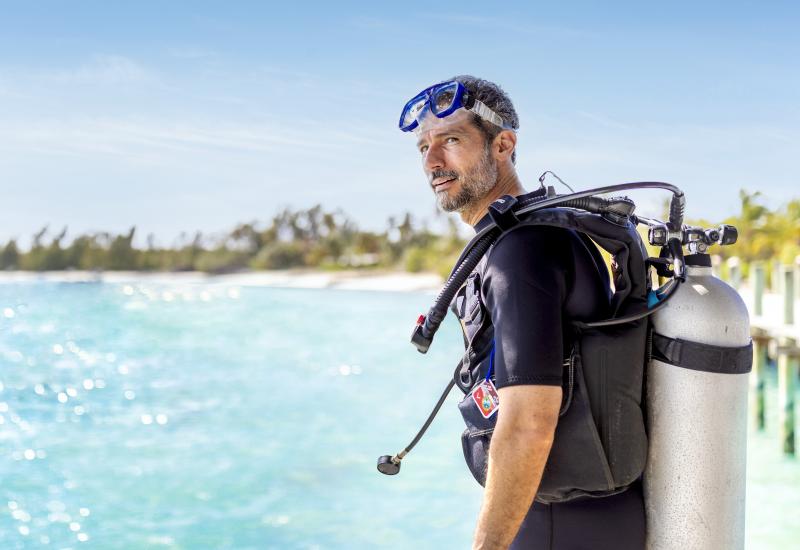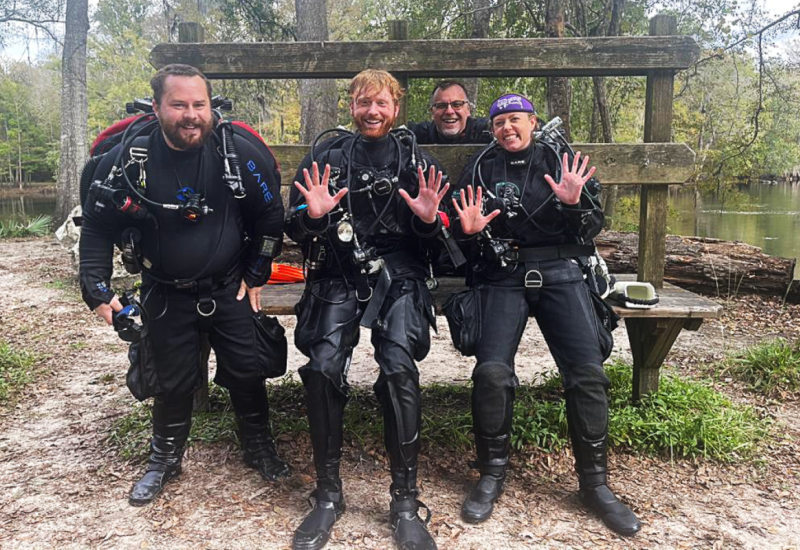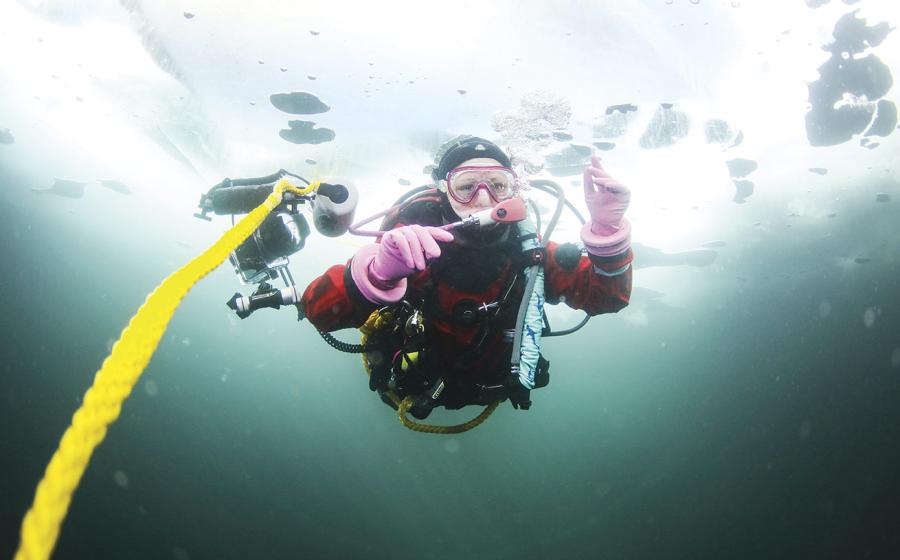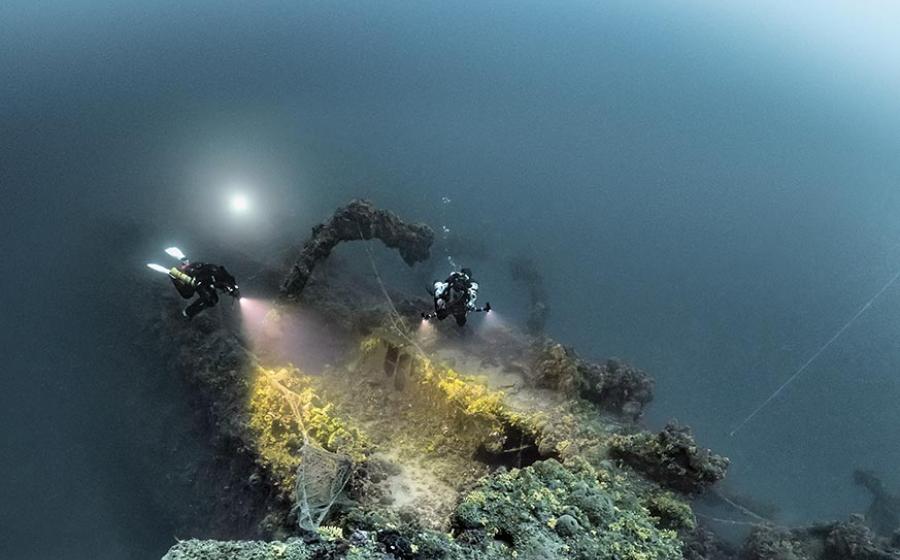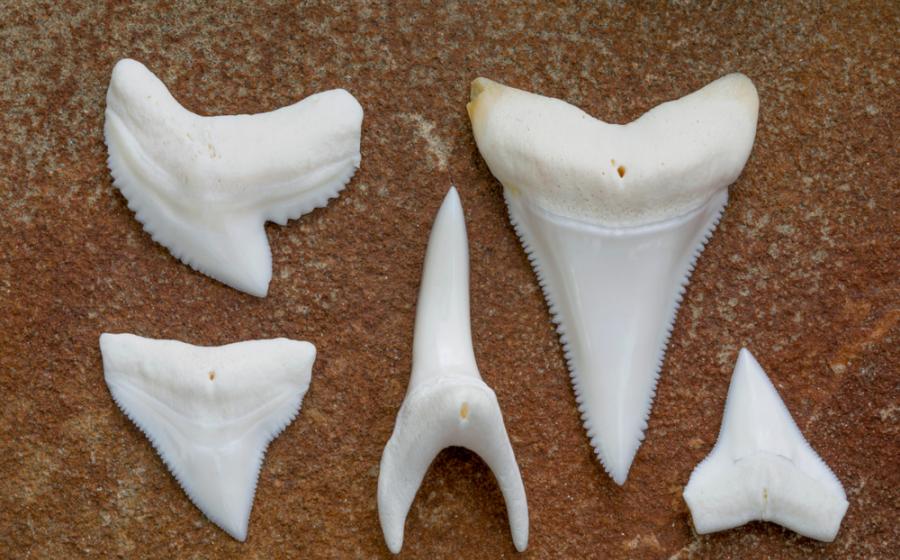Rescue's Rewards
January 2008
By Eric Douglas
I taught my first rescue class as a newly minted dive instructor, and I felt a little intimidated. In preparation, I went through all my teaching materials and did a lot of background work in addition to what I had already learned in my instructor course. Finally, I stepped back and thought about my own rescue class. The one thought that kept coming back to me was the sense of satisfaction I had at the end. Granted, I was thoroughly exhausted, but it was the type of contented exhaustion that only comes after you've pushed yourself extra-hard to accomplish something that you know you'll remember forever. I was proud. I faced stress and physical challenges and grew tremendously as a diver in just a few days, feeling more comfortable and confident in the water than I had ever felt before. I hoped my own students would have that same feeling at the end of our rescue weekend.
Why take a rescue class?
Even the most experienced open-water divers should actively keep learning, not only to keep their skills fresh but also to expand their range of underwater abilities and experiences. This kind of growth is natural in any sport, and continuing-education diving classes--such as specialty courses and rescue diving--help boost your confidence and expose you to new diving environments. And while specialty courses prepare you for specific environments or situations like night diving, drift diving or boat diving, rescue is the continuing-education course every diver should take because it teaches skills that you can use in every diving situation, while training you how to think beyond yourself.
The typical rescue class, regardless of the agency offering it, teaches search patterns and in-water rescue techniques; how to bring an unconscious diver to the surface and swim him or her to the boat or beach; and the most effective rescue skill of all: how to recognize, plan for and prevent problems before they even arise.
The one thing you won't find on any class outline or course objective, however, is the topic "how to be a better diver." But that's exactly what rescue is all about. When you combine all the skills, lessons and practice time in the rescue diver course, it teaches the following six life skills, and the confidence that comes from completing this course helps you grow as a leader in the water.
Observation and Prevention
"I've always told students they will experience a personal diving metamorphosis during the rescue diver course. I know that's a big word, but it depicts the magnitude of the transformation they're about to experience," says Scott Taylor, owner of A1 Scuba in Englewood, Colo. "Their tunnel vision will disappear as their peripheral vision begins to develop. This broader view will enable them to focus on their own personal needs while also assisting others. Just as important, their new vision will allow them to help prevent potential problems."
The key to preventing accidents is catching them when they're small or before they become problems at all. Like a cop who never turns off his instinct to watch a crowd, rescue divers understand the things that cause people to get into trouble, and they stay vigilant. You might notice a diver who looks uncomfortable or acts out of character before a dive and realize that trouble is brewing. You'll understand you do have a responsibility to help--before that diver gets hurt.
Underwater, these observational skills make you a better buddy or dive leader because you'll know how to look for the little things--a loose weight belt, a leaky BC, the wide eyes of a nervous diver who just might bolt for the surface--and address them before they become a serious problem. Being more observant also makes your dives more enjoyable. Constantly scanning the area around you helps you notice marine life you might otherwise have missed, and this increased awareness of your surroundings also helps you navigate back to the boat when it's time to turn around, meaning everyone with you will make it back to the boat on time, with air still in their tanks and without having to make a long, tiring surface swim.
"Rescue training produces a more responsible, skillful and knowledgeable diver," says Bill McDermott, owner of Outer Banks Diving Center in Nags Head, N.C. "This is because proper rescue diver training teaches not only rescue skills and knowledge but trains a diver to be more aware and responsive to himself and other divers. This in itself can prevent incidents."
Skills & Knowledge
Ironically, there is very little diving in a rescue diving course. While you'll spend hours in the water practicing different rescue scenarios and learning rescue techniques, you typically won't spend much of that time under the water. The rescue class isn't about making dives, logging bottom time or exploring new underwater environments. You'll spend your time learning how to act and react in an emergency. You'll learn how to help others without getting yourself into trouble.
You'll also learn how to provide emergency care for an injured diver because basic first-aid and life-support techniques--primary victim assessment, rescue breathing (mouth-to-mouth resuscitation) and CPR--are class requirements that you'll meet either through a separate class, like those offered by the Red Cross, or from a land-based first-aid class offered by your dive training agency. Rescue will help you adapt these skills to the diving world.
"They achieve a certain degree of comfort with their own skills, allowing them to focus on the bigger picture and the needs of others," says Leslie Koontz, an SSI instructor certifier from Debary, Fla. "If the course also places significant emphasis on stress, they are taught not only rescue skills but skills that prepare them to detect and deal with stress.
Responsibility and Awareness
Rescue divers do have more responsibility than open-water divers. However, it's not a bad thing or a legal issue. They generally understand that they know more than they did as an open-water diver, and that knowledge brings with it a duty to help others. An awareness of what causes dive accidents and knowing how to handle them, along with the confidence that comes from that experience, gives rescue divers the responsibility to act when the situation demands it.
"Rescue courses help to provide divers with the necessary skills, both in and out of the water, to respond correctly in the unlikely event of a diving accident or other aquatic emergency," says Michael Steidley, a PADI course director from Carlsbad, Calif.
Dive accidents are rare. Most divers, even most rescue divers, will never need to perform in-water resuscitation while towing a near-drowning victim through six-foot seas, or find themselves searching the confines of a deep shipwreck for a missing buddy team. But remember, a rescue is often not a situation where you risk your own life to save another person. Nor is it usually a situation where a diver nearly dies before you pull him or her back from the brink. A rescue can mean spotting a potential problem and taking the steps to prevent it. A rescue can be as simple as towing a tired diver back to the boat, helping someone whose tank has slipped out of its securing straps or talking with a nervous diver to find out if they're OK to make the dive. "Rescue divers have an increased awareness and knowledge they can use to help divers avoid accidents and dangerous situations," Steidley says. "That is the biggest benefit of a rescue class."
And late on that long-ago Sunday afternoon, as the students in my first-ever rescue class stripped off one another's masks, weights and BCs, planted their last (simulated) rescue breaths and hauled their final "victims" out of the water and onto the shore, I could tell a lot had changed since Saturday morning. It had been a tough couple of days, but they had a new fire in their eyes, spring in their fin kicks and an aura of confidence that told me they had the same pride of accomplishment that I felt when I first took the class. Some went on to become divemasters and instructors, others carried their new skills with them as they continued diving for fun, but to this day, they all remain dedicated divers who enjoy the sport so much more for knowing how to keep themselves and those around them safe.
Dan's DES program
The Divers Alert Network (DAN) Diving Emergency Specialist (DES) program is an important step for every rescue diver.
DAN created this recognition program to encourage divers to complete their rescue courses and take the additional first-aid training that will help them be better prepared to care for other divers in the event of an emergency.
To qualify for the DES recognition through DAN, a diver must:
- Hold a current rescue diver certification
- Hold a current first aid and CPR certification
- Have completed DAN Oxygen First Aid for Scuba Diving Injuries (or equivalent)
- Complete three other DAN dive-specific first-aid courses or their equivalents, including:
- AEDs for Scuba Diving
- First Aid for Hazardous Marine Life Injuries
- Remote Emergency Medical Oxygen (REMO2™)
- On-Site Neurological Assessment for Scuba Diving
- Advanced Oxygen First Aid for Scuba Diving Injuries
- Basic Life Support for Dive Professionals
For more information on the Diving Emergency Specialist program, visit the DAN web site for details at www.diversalertnetwork.org.
January 2008
By Eric Douglas
I taught my first rescue class as a newly minted dive instructor, and I felt a little intimidated. In preparation, I went through all my teaching materials and did a lot of background work in addition to what I had already learned in my instructor course. Finally, I stepped back and thought about my own rescue class. The one thought that kept coming back to me was the sense of satisfaction I had at the end. Granted, I was thoroughly exhausted, but it was the type of contented exhaustion that only comes after you've pushed yourself extra-hard to accomplish something that you know you'll remember forever. I was proud. I faced stress and physical challenges and grew tremendously as a diver in just a few days, feeling more comfortable and confident in the water than I had ever felt before. I hoped my own students would have that same feeling at the end of our rescue weekend.
Why take a rescue class?
Even the most experienced open-water divers should actively keep learning, not only to keep their skills fresh but also to expand their range of underwater abilities and experiences. This kind of growth is natural in any sport, and continuing-education diving classes--such as specialty courses and rescue diving--help boost your confidence and expose you to new diving environments. And while specialty courses prepare you for specific environments or situations like night diving, drift diving or boat diving, rescue is the continuing-education course every diver should take because it teaches skills that you can use in every diving situation, while training you how to think beyond yourself.
The typical rescue class, regardless of the agency offering it, teaches search patterns and in-water rescue techniques; how to bring an unconscious diver to the surface and swim him or her to the boat or beach; and the most effective rescue skill of all: how to recognize, plan for and prevent problems before they even arise.
The one thing you won't find on any class outline or course objective, however, is the topic "how to be a better diver." But that's exactly what rescue is all about. When you combine all the skills, lessons and practice time in the rescue diver course, it teaches the following six life skills, and the confidence that comes from completing this course helps you grow as a leader in the water.
Observation and Prevention
"I've always told students they will experience a personal diving metamorphosis during the rescue diver course. I know that's a big word, but it depicts the magnitude of the transformation they're about to experience," says Scott Taylor, owner of A1 Scuba in Englewood, Colo. "Their tunnel vision will disappear as their peripheral vision begins to develop. This broader view will enable them to focus on their own personal needs while also assisting others. Just as important, their new vision will allow them to help prevent potential problems."
The key to preventing accidents is catching them when they're small or before they become problems at all. Like a cop who never turns off his instinct to watch a crowd, rescue divers understand the things that cause people to get into trouble, and they stay vigilant. You might notice a diver who looks uncomfortable or acts out of character before a dive and realize that trouble is brewing. You'll understand you do have a responsibility to help--before that diver gets hurt.
Underwater, these observational skills make you a better buddy or dive leader because you'll know how to look for the little things--a loose weight belt, a leaky BC, the wide eyes of a nervous diver who just might bolt for the surface--and address them before they become a serious problem. Being more observant also makes your dives more enjoyable. Constantly scanning the area around you helps you notice marine life you might otherwise have missed, and this increased awareness of your surroundings also helps you navigate back to the boat when it's time to turn around, meaning everyone with you will make it back to the boat on time, with air still in their tanks and without having to make a long, tiring surface swim.
"Rescue training produces a more responsible, skillful and knowledgeable diver," says Bill McDermott, owner of Outer Banks Diving Center in Nags Head, N.C. "This is because proper rescue diver training teaches not only rescue skills and knowledge but trains a diver to be more aware and responsive to himself and other divers. This in itself can prevent incidents."
Skills & Knowledge
Ironically, there is very little diving in a rescue diving course. While you'll spend hours in the water practicing different rescue scenarios and learning rescue techniques, you typically won't spend much of that time under the water. The rescue class isn't about making dives, logging bottom time or exploring new underwater environments. You'll spend your time learning how to act and react in an emergency. You'll learn how to help others without getting yourself into trouble.
You'll also learn how to provide emergency care for an injured diver because basic first-aid and life-support techniques--primary victim assessment, rescue breathing (mouth-to-mouth resuscitation) and CPR--are class requirements that you'll meet either through a separate class, like those offered by the Red Cross, or from a land-based first-aid class offered by your dive training agency. Rescue will help you adapt these skills to the diving world.
"They achieve a certain degree of comfort with their own skills, allowing them to focus on the bigger picture and the needs of others," says Leslie Koontz, an SSI instructor certifier from Debary, Fla. "If the course also places significant emphasis on stress, they are taught not only rescue skills but skills that prepare them to detect and deal with stress.
Responsibility and Awareness
Rescue divers do have more responsibility than open-water divers. However, it's not a bad thing or a legal issue. They generally understand that they know more than they did as an open-water diver, and that knowledge brings with it a duty to help others. An awareness of what causes dive accidents and knowing how to handle them, along with the confidence that comes from that experience, gives rescue divers the responsibility to act when the situation demands it.
"Rescue courses help to provide divers with the necessary skills, both in and out of the water, to respond correctly in the unlikely event of a diving accident or other aquatic emergency," says Michael Steidley, a PADI course director from Carlsbad, Calif.
Dive accidents are rare. Most divers, even most rescue divers, will never need to perform in-water resuscitation while towing a near-drowning victim through six-foot seas, or find themselves searching the confines of a deep shipwreck for a missing buddy team. But remember, a rescue is often not a situation where you risk your own life to save another person. Nor is it usually a situation where a diver nearly dies before you pull him or her back from the brink. A rescue can mean spotting a potential problem and taking the steps to prevent it. A rescue can be as simple as towing a tired diver back to the boat, helping someone whose tank has slipped out of its securing straps or talking with a nervous diver to find out if they're OK to make the dive. "Rescue divers have an increased awareness and knowledge they can use to help divers avoid accidents and dangerous situations," Steidley says. "That is the biggest benefit of a rescue class."
And late on that long-ago Sunday afternoon, as the students in my first-ever rescue class stripped off one another's masks, weights and BCs, planted their last (simulated) rescue breaths and hauled their final "victims" out of the water and onto the shore, I could tell a lot had changed since Saturday morning. It had been a tough couple of days, but they had a new fire in their eyes, spring in their fin kicks and an aura of confidence that told me they had the same pride of accomplishment that I felt when I first took the class. Some went on to become divemasters and instructors, others carried their new skills with them as they continued diving for fun, but to this day, they all remain dedicated divers who enjoy the sport so much more for knowing how to keep themselves and those around them safe.
Dan's DES program
The Divers Alert Network (DAN) Diving Emergency Specialist (DES) program is an important step for every rescue diver.
DAN created this recognition program to encourage divers to complete their rescue courses and take the additional first-aid training that will help them be better prepared to care for other divers in the event of an emergency.
To qualify for the DES recognition through DAN, a diver must:
- Hold a current rescue diver certification
- Hold a current first aid and CPR certification
- Have completed DAN Oxygen First Aid for Scuba Diving Injuries (or equivalent)
- Complete three other DAN dive-specific first-aid courses or their equivalents, including:
- AEDs for Scuba Diving
- First Aid for Hazardous Marine Life Injuries
- Remote Emergency Medical Oxygen (REMO2™)
- On-Site Neurological Assessment for Scuba Diving
- Advanced Oxygen First Aid for Scuba Diving Injuries
- Basic Life Support for Dive Professionals For more information on the Diving Emergency Specialist program, visit the DAN web site for details at www.diversalertnetwork.org.

